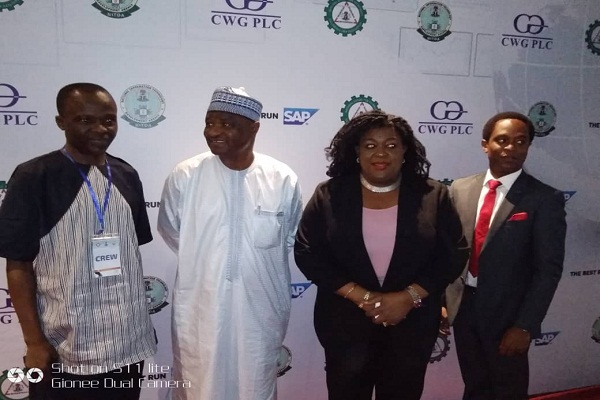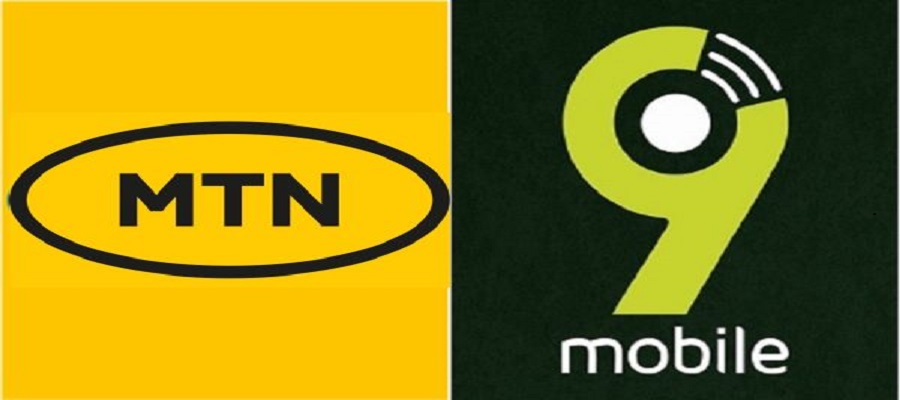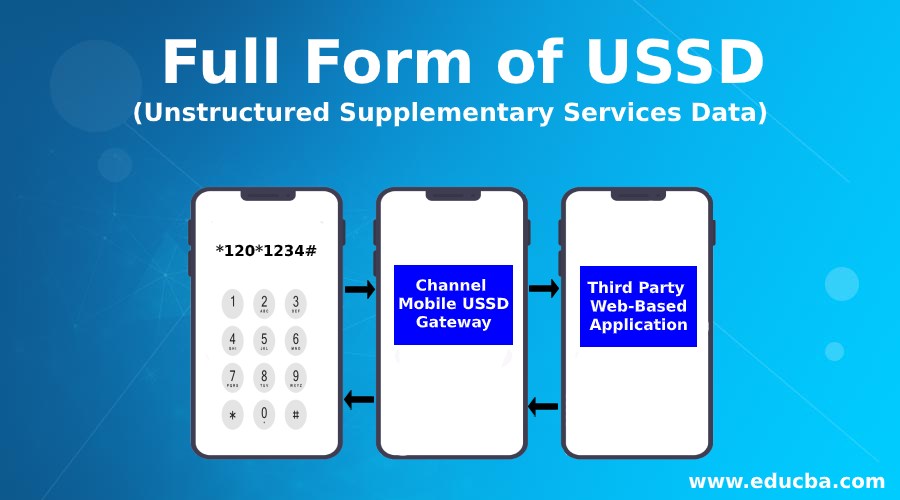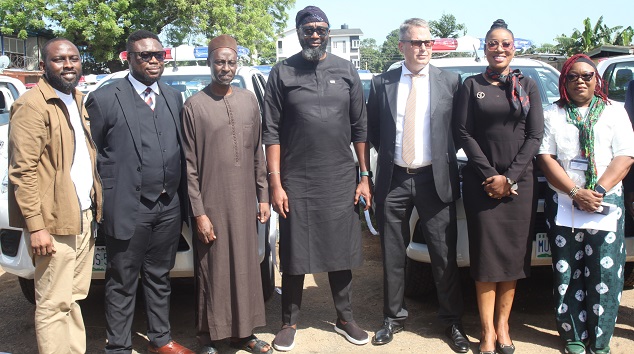Telecom
Stakeholders Reiterate Need For Development of Local Content in the Financial Sector

Stakeholders in the Information and Communications Technology (ICT) have reiterated the need for the use of Nigerian software in the financial sector.
They made this call at the ongoing stakeholder’s roundtable on the use of Nigerian software in the financial sector, with the theme:”Adoption and Development of Local Content Technology as Growth Driver for the Nigerian Economy”, holding in Lagos.
Dr Dan Ibrahim Azumi, DG, National Office for Technology Acquisition and Promotion (NOTAP) While speaking at the event said that their objective is to promote awareness for the development and utilization of local Technology Solutions in various sectors of the Nigerian economy.
According to him, “our objectives are to promote awareness for the development and utilization of local Technology Solutions in various sectors of the Nigerian economy, to discuss the challenges confronting the local Technology Solution Providers, identify specific areas where NOTAP and NITDA can intervene to create an enabling environment to enhance local vendorship.
“And also to identify companies with high demand for software Solutions developed in Nigeria, provide a platform for linking local software suppliers to end-users as an avenue to create and generate employment , income and wealth in Nigeria.”
He decried the huge sums of money being remitted out of the country without the foreign ICT owners assisting local partners to develop its knowledge base, capacity and intelligence as required by the terms of the agreement entered into.
He urged Nigerians not to be under any illusion that foreign firms are here for the development of our country, stressing that we need to be strategic to leverage on the available foreign technologies to ensure inclusive and sustainable growth of our country.
Speaking earlier, Dr Ogbonnaya Onu, Minister of Science and Technology, said that the Federal Government of Nigeria is emphasising on local participation in the execution of government contracts so as improve local content in national socio-economic development.
Dr Onu, who was represented by Prof. Gloria Elemo, Director General, Federal Institute of Industrial Research (FIIRO) said that the Economic Recovery and Growth Plan (ERGP) of the Federal Government of Nigeria led by President Muhammad Buhari is an developmental initiative focused on restoring growth, investing in people and building a globally competitive economy.
He noted that Executive Order No. 5 was signed by Mr President on February 2, 2018 with focused on the development of local content in Science, Engineering and Technology (SET).
According to him, “Mr President directed all MDAs of government to engage indigenous professionals in the planning, design and execution of national security projects with the intention to maximising the in-country capacity and capability in all contracts and transactions with SET components, utilizing Nigeria human and material resources in the planning and execution of Nigerian projects.
“The Order directed that all procurement entities of the FGN shall give preference to Nigerian companies in the award of contracts for major projects in SET and where local expertise is not available, Nigerian company shall enter into consortium with relevant foreign firms.
Director-General of NITDA, Dr Isa Pantami, who was represented by Dr Chris Okeke said the country saved N13 billion from 2018 up till now due to the ban of foreign techs and the use of local contents. The amount is up from the N5 billion previously recorded.
He said the policy was boosting ICT, the economy, the gross domestic product and helping diversity in revenue generation. He also said about 95 per cent of government websites are now hosted locally.
Telecom
9mobile Nigeria Inks Agreement to Roam with MTN

9mobile, Nigerian operator, has reportedly gained approval for roaming on the MTN Nigeria network in a deal that some commentators suggest could improve its position in the market and, more specifically, tempt back lost subscribers.

After finally gaining regulatory approval from the Nigerian Communications Commission (NCC), 9mobile plans to launch national roaming services on the MTN network from this month.
Under the agreement, 9mobile subscribers will gain access to MTN’s infrastructure for calls, texts and data in areas where 9mobile’s coverage is weak or unavailable.
For 9mobile, the deal offers a cost-effective way to expand coverage without the heavy investment required for nationwide infrastructure.
According to ITWeb Africa, the decision comes nearly five years after initial discussions – much longer than expected due, the Techloy news service said, to regulatory bottlenecks, shifting market conditions, and unclear execution timelines.
It may, however, prove pivotal for 9mobile, whose market share has dwindled to 1.72% in April 2025, down from 6.6% in 2020 when the proposal was first submitted. Indeed, in 2015 the company once known as Etisalat Nigeria had over 23 million subscribers and a 15.7% market share.
Of course, there’s also something in this for MTN. In exchange for network access, MTN gains utilisation rights to 9mobile’s underused spectrum in the 900MHz, 1800MHz, and 2100MHz bands – key frequencies for expanding coverage and improving data capacity.
For MTN, which serves over 84 million subscribers, this additional spectrum could reduce congestion and improve service quality.
The company has also had financial difficulties in the Nigerian market due to the naira’s substantial depreciation; this deal could support better service provision at a reduced cost.
That said, MTN Nigeria’s results for the first quarter to March 31 2025 were apparently much improved, and the company recently announced a massive capital expenditure drive for 2025 of some NGN900 billion (US$568.5 million) as it seeks to significantly enhance network service quality in major cities like Lagos and Abuja and extend improvements to other areas.
Telecom
Banks, Telcos to Start Deducting USSD Charges from Airtime Today

Banks and telecom companies will begin deducting USSD banking charges directly from customers’ airtime instead of their bank accounts beginning from today, June 3.

USSD, otherwise Unstructured Supplementary Service Data, is a communications protocol used by GSM cellular telephones to interact with a mobile network operator’s computers.
First City Monument Bank (FCMB) announced this change in an e-mail message to customers, following a directive from the Nigerian Communications Commission (NCC).
Key details:
Each USSD session will cost ₦6.98 per 120 seconds, charged by your mobile network.
You will be asked to approve the charge before it’s deducted from your airtime.
If you prefer, you can use other banking channels like ATMs, mobile apps, or internet banking.
This change is part of a move to end the long-standing debt dispute between banks and telecoms over unpaid USSD fees.
As of late 2024, banks owed telecom companies ₦160 billion. For example, MTN was owed ₦42 billion by Nigerian banks.
By shifting USSD fees to customers’ airtime, the telcos aim to recover these debts and avoid future issues.
Telecom
IHS Nigeria Moves to Enhance G4S Secure Solutions Site Patrols and Increase Operational Efficiency with Patrol Vehicles

IHS Nigeria, a subsidiary of IHS Holding Limited and one of the largest independent owners, operators, and developers of shared telecommunications infrastructure in the world by tower count, has formally commissioned 65 Response, Patrol, and Escort (RPE) vehicles to G4S Secure Solutions Nigeria Limited, its long-standing security partner.

The commissioning ceremony which held in Ikeja GRA, Lagos, underscores IHS Nigeria’s commitment to operational excellence, safety, and strategic partnerships.
The fully equipped vehicles, customized with radio systems, public address systems, medical kits, ladders, and amber lights, are expected to significantly enhance G4S’s patrol capabilities and enable proactive risk mitigation across IHS Nigeria’s infrastructure footprint in the country.
Speaking at the event, Jubril Saba, Vice President, Operations at IHS Nigeria, remarked: “IHS Nigeria is delighted to formally hand over these Response, Patrol and Escort (RPE) vehicles to our valued security partner, G4S Secure Solutions Nigeria Limited. As a company, we recognize that the success of our operations lies not only in our technology and infrastructure but also in the strength of the partnerships we build and sustain.
G4S has been an essential partner in protecting our sites, supporting our teams, and ensuring operational continuity across the country. This initiative is more than just a commissioning of vehicles; it is a reaffirmation of our commitment to the safety of our people and assets, our drive for operational excellence, and our belief in strong partnerships.
We understand that securing our infrastructure and communities is critical to sustaining high-quality services nationwide, and we are confident this fleet will enhance G4S’s capacity to support us.”
Also speaking at the event, Jonas Ahl, Managing Director of G4S Secure Solutions Nigeria Limited, expressed his appreciation for the partnership:
“We are proud to receive these 65 custom-built patrol vehicles from IHS Nigeria. Each unit is fully outfitted to meet the specific security needs of our operations, equipped with communication systems, emergency response tools, and visibility-enhancing features. These vehicles will not only improve our response times and field presence but also enable us to reduce risk and deter criminal activity more effectively.
I would like to thank the IHS team for their excellent collaboration throughout this project. We are proud to serve IHS and remain committed to protecting the assets that power connectivity across Nigeria.”
This strategic gesture reinforces IHS Nigeria’s position as a socially responsible and security-conscious industry leader, while highlighting the value of operational synergy with trusted partners like G4S.
The deployment of these vehicles marks another milestone in IHS’s mission to secure its infrastructure and deliver uninterrupted service to millions of users across the country.

 E-Business2 days ago
E-Business2 days agoFarmers to Get Identity Card for Loans, Inputs

 Telecom2 days ago
Telecom2 days agoARCON Probes 9mobile over Alleged N1Bn Advertising Debt

 News2 days ago
News2 days agoSERAP Sues NNPC over Alleged Missing ₦500Bn, Seeks Accountability

 News2 days ago
News2 days agoFirst Asset Management Receives 2024 Fund Manager Award

 E-Business2 days ago
E-Business2 days agoDyna.Ai Launches Operations in Nigeria

 General News2 days ago
General News2 days agoNigeria Relaunches National Talent Export Programme to Unlock $1 Trillion Global Outsourcing Market

 Telecom2 days ago
Telecom2 days agoNiRA Holds 17th AGM, Elects New Leadership to Propel .ng Domain Growth

 News2 days ago
News2 days agoIkeja Computer Village Begins Biometrics Registration to Tackle Crime




























